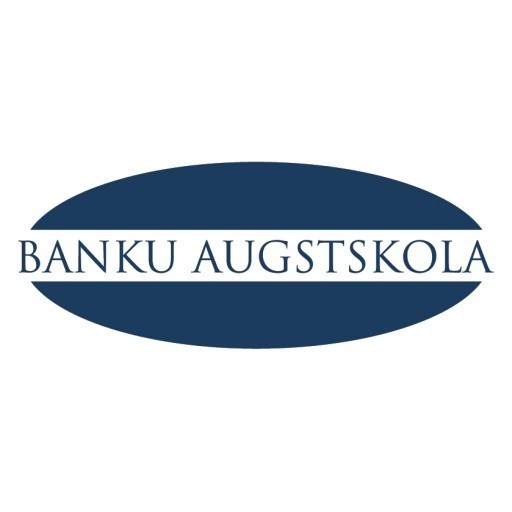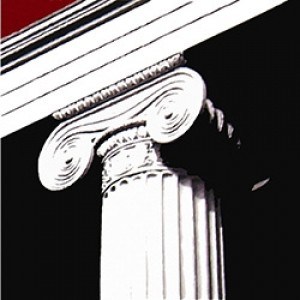Photos of university / #websteru
Program Description
The master of science (MS) in forensic accounting degree program is designed to provide students with the skills necessary to be successful in the growing and exciting field of forensic accounting. The curriculum for this degree includes courses in criminal and civil investigation, legal procedure, management of evidence, cyber forensics, substantive law, valuation, economic damages and internal auditing. An important element of the courses is the integration, in the course activities, of a variety of cases and role playing exercises. Another important element is the faculty with their extensive backgrounds in forensic accounting, both from an academic and practical standpoint, who will both challenge and educate the students. Successful graduates of the program will have the ability to conduct successful investigations and be able to effectively communicate in writing and orally both in and out of the courtroom with respect to a variety of criminal and civil financial matters. Graduates of this program will be well prepared for a career in this interesting mix of accounting, investigation, valuation and law known as forensic accounting.
This program is offered at the St. Louis home campus.
The MS in forensic accounting is accredited by the Accreditation Council for Business Schools and Programs (ACBSP).
Learning Outcomes
- Students will be able to identify and apply the law, the rules of procedure and evidence and ethics that relate to forensic accounting.
- Students will be able to identify, investigate and discover fraud and other improper accounting activities.
- Students will be able to, orally and in writing, effectively communicate matters related to forensic accounting.
Program Curriculum
The master of science in forensic accounting requires the successful completion of 36 credit hours, including 30 required credit hours and 6 credit hours of electives. The following courses are required for the master of science in forensic accounting:
- ACCT 5000 Introduction to Forensic Accounting (3 hours)
- ACCT 5010 Legal Procedure, Substantive Law and Professional Ethics in Forensic Accounting (3 hours)
- ACCT 5100 Investigation of Financial Fraud (3 hours)
- ACCT 5150 Introduction to Cyber Forensics (3 hours)
- ACCT 5200 Business Valuation (3 hours)
- ACCT 5250 Special Topics in Litigation Accounting (3 hours)
- ACCT 5350 Analytics for Forensic Accountants (3 hours)
- ACCT 5400 Internal Auditing (3 hours)
- ACCT 5500 Case Studies in Forensic Accounting (3 hours)
- ACCT 5900 Forensic Accounting Capstone (3 hours)
Admission
- Official transcripts from all of your all previously attended colleges and universities (including community colleges and summer courses).
- The applicant must have completed the BS in business administration degree or approved equivalent from an accredited institution.
- The applicant must have the following accounting courses or approved equivalent:
- Financial Accounting
- Managerial Accounting
- Advanced Cost Accounting
- Intermediate Accounting I
- Intermediate Accounting II
- Federal Income Tax
- Accounting Information Systems
- Auditing
Webster University reserves the right to modify the requirements for admission and/or graduation, the program curricula, program dates and locations, tuition, fees, and other regulations affecting the student body.
Funding opportunities for the Forensic Accounting program at Webster University include a variety of financial aid options designed to support graduate students in their academic pursuits. Students may be eligible for federal and state grants, scholarships, and assistantships based on merit, need, and academic performance. Webster University offers merit-based scholarships specifically for graduate and international students, which can significantly offset tuition costs. Additionally, students are encouraged to explore external funding sources such as private scholarships and industry-specific grants related to accounting and forensic sciences. The university also provides information about payment plans and employer tuition reimbursement programs, which can assist students in managing their educational expenses over time. International students often have access to designated scholarship programs and opportunities tailored to their needs, which help facilitate their study abroad experience in the United States. Financial aid is typically awarded on a competitive basis, and applicants are advised to submit the Free Application for Federal Student Aid (FAFSA) and other relevant documentation promptly. Moreover, Webster University offers counseling services to help students identify suitable funding options and develop personalized financial plans. The university’s financial services team provides detailed guidance on tuition fees, estimates of total costs—including technology fees, books, and living expenses—and available funding sources. For students seeking part-time employment, Webster's career services can assist with on-campus job placement opportunities that accommodate academic schedules. International students also have access to specialized financial advisement to navigate visa-related financial requirements and ensure compliance with United States immigration policies concerning funding. Overall, Webster University endeavors to make education accessible by providing comprehensive financial support mechanisms for students enrolled in the Forensic Accounting program.
Forensic Accounting at Webster University offers students a comprehensive curriculum designed to prepare them for careers involving the investigation, analysis, and management of financial crimes and disputes. This program combines principles of accounting, criminology, law, and forensic investigation to equip graduates with the skills needed to detect and combat fraudulent activities, financial misconduct, and economic crimes. Students learn how to examine financial documents, identify irregularities, and provide expert testimony as well as develop an understanding of legal procedures related to financial investigations. The program emphasizes practical skills through case studies, simulations, and opportunities for internships, ensuring that students gain real-world experience. Webster University’s interdisciplinary approach integrates courses in accounting, financial analysis, digital forensics, and legal aspects of financial crime. The degree aims to produce well-rounded professionals capable of working in diverse settings such as law enforcement agencies, forensic accounting firms, corporate compliance departments, and governmental organizations. The program also highlights ethical considerations and professional standards necessary for integrity in forensic accounting. Students have access to advanced technological tools used in digital forensics and fraud detection. The university’s extensive network of industry partners and alumni provides valuable opportunities for mentorship and career placement. The department is committed to maintaining high academic standards and staying current with evolving trends in financial crimes and forensic methodologies. The program can be completed fully online or on-campus, offering flexibility for working professionals. Graduates of the Forensic Accounting program at Webster University can pursue certifications such as Certified Fraud Examiner (CFE) and Certified Public Accountant (CPA), enhancing their credentials and job prospects. The curriculum aligns with industry demands, ensuring that graduates are well prepared to contribute effectively to the prevention, detection, and investigation of financial crimes worldwide.







